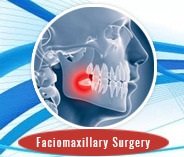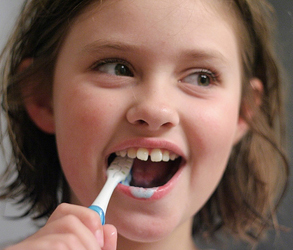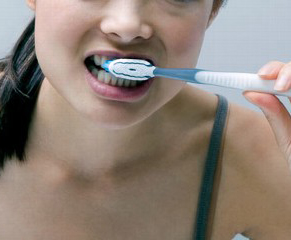Preventive Dentistry is that branch of dentistry practiced by dental hygienists that deals with the preservation of healthy teeth and gums and the prevention of dental caries and oral disease. Preventive Dentistry aims to reduce the required dental restorations in your lifetime – minimizing your risk of developing tooth decay and Gum Disease.
Mastering the art of good oral hygiene is a fundamental component of Preventive Dentistry care.
Top Tips for Brushing Teeth
- Brush your teeth at least twice per day (after breakfast and after dinner).
- Brush with a soft round bristle toothbrush for teeth cleaning.
- Place your toothbrush where the gum meets the tooth, at a 45degree angle (enabling you to clean under the gum line). Bacteria accumulate along the tooth at the gum line, so it is essential to focus on this area.
- Brush your gums very gently. (The correct brushing motion is a circular massaging technique along the gum line rather than vigorous brushing back and forth. Vigorous brushing can injure your gums.)
- Use a tongue scraper to clean your tongue which will remove additional bacteria and freshens your breath.
- Replace your toothbrush every three to four months or after an illness, whichever comes first.
- Use toothpaste with added fluoride for cavity protection.
The Importance of Flossing
It is essential to floss your teeth at least once each day for optimal dental health. When you brush teeth, you are removing plaque from the surface of your teeth.
There are many dental clinics and hospitals in India which provide affordable dental care and other preventive dental services at very low costs.
Prevention of Tooth Decay in Children
Preventive dental care for children includes:
- Proper nutrition and dietary habits
- Brushing and flossing
- Fluoride
- Regular dental check-ups
- Assessing risk for developing cavities
- Evaluating oral growth and development
- Oral health education
- Preventing teeth grinding in sleep
- Managing and preventing tooth decay in children
- Protection against injuries
- Management of oral habits
- Guidance of erupting teeth
- Prevention of tooth clenching
- Sealants
Your pediatric dentist practices preventive dentistry. Preventive dentistry for children, in addition to regular dental visits, requires parental involvement with daily oral care at home and other family dental services.
Importance of Preventive Dentistry for Children
Children with healthy mouths have a better chance of general health. Oral conditions can interfere with eating and adequate nutritional intake, speaking, self-esteem, and daily activities. Severe decay can affect growth and development. Children with dental pain may be unable to concentrate in school. A healthy mouth is more attractive, giving children confidence in their appearance. Finally, preventive dentistry can result in less extensive and less expensive treatment for your child.
Pediatric dentistry begins with the first tooth. Daily cleaning of the teeth should begin as soon as the first tooth erupts. Visit your pediatric dentist at the eruption of the first tooth or no later than 12 months of age to establish a dental home. Early dental visits are the foundation for a lifetime of good oral health. The earlier the dental visit, the better the chance of preventing dental disease and helping your child build a cavity-free smile.
Role of Parents
After completing a thorough oral examination and assessing your child’s risk for developing cavities, your children’s dentist will design a personalized preventive program of home care for your child. This program will include brushing and flossing instructions, diet counseling and, if necessary, fluoride recommendations. By following these directions, you can help give your child a lifetime of healthy habits.
How do pediatric dentists help prevent dental problems?
Tooth cleaning and polishing and fluoride treatments are all part of your child’s prevention program. However, there is much more. For example, your pediatric dentist can apply sealants to protect your child from tooth decay, help you select a mouth guard to prevent sports injuries to the face and teeth, and provide early diagnosis and care of orthodontic problems. Your pediatric dentist is uniquely trained to develop a combination of office and home preventive care to insure your child a happy smile.
Preventive Dentistry for Pregnant Patients
Mothers with gum disease have a higher instance of preterm birth, a potentially serious pregnancy complication that may cause health concerns for their infant, typically due to a low birth weight.
Pregnancy gingivitis is a common form of gum disease known to develop in almost half of all pregnant women likely due to the change in hormones. When kept at-bay, pregnancy gingivitis generally ends shortly after the birth of the child, although it should be monitored by a dentist periodically during pregnancy in order to prevent this form of gingivitis from progressing into more serious periodontitis, an advanced and irreversible form of gum disease that has been linked with preterm birth. Pregnant mothers with periodontal disease are seven times more likely to go into preterm labor. Prostaglandin, a chemical found in oral bacteria, may induce labour. And high levels of prostaglandin have been found in the mouths of women with severe cases of periodontal disease.
The following guidelines were developed by the AAP in response to the growing concern surrounding oral health during pregnancy:
- Oral Health Education: Counseling and early intervention by healthcare providers such as physicians, nurses, and dentists to provide expectant mothers with the tools and resources necessary to understand the importance of oral health care and preventing pregnancy toothache, tooth infection, wisdom tooth pain and its related problems and other oral complications.
- Oral Hygiene: Removing the bacterial plaque, which researchers have connected to preterm birth and low birth-weight babies, is essential. Using the correct brushing and flossing methods greatly increase the amount of plaque that is removed from the teeth and gums.
- Fluoride: Use of toothpaste with fluoride by persons over the age of six is recommended. It is advised that the continued use of fluoridated toothpaste during pregnancy helps reduce the amount of plaque in the mouth.
- Nutrition: Educating expectant mothers about proper diet and nutrition during pregnancy will limit unnecessary sugar intake and in turn, prevent plaque build up and tooth pain.
- Treating Existing Tooth Decay: Expectant mothers are encouraged to have existing tooth decay treated during their pregnancy, which experts believe is a completely safe practice during pregnancy. Restoring decayed teeth will help achieve oral health by removing the bacteria associated with tooth decay.
- Transmission of Bacteria: Expectant mothers are discouraged from sharing food and utensils in order to prevent the transmission of the bacteria known to cause tooth decay.
- Use of Xylitol Gum: Expectant mothers are encouraged to chew xylitol gum (four times a day) as research suggests that chewing this gum may decrease the rate of tooth decay in children.
Talk to Your Dentist
If you are pregnant or are considering pregnancy, discuss any concerns you may have with your dentist, who might adjust any dental procedures you should undertake at an appropriate time. Women who are thinking about becoming pregnant may want to consider their oral health before becoming pregnant. Despite this fact, experts insist that regular oral health care should continue throughout pregnancy.
















